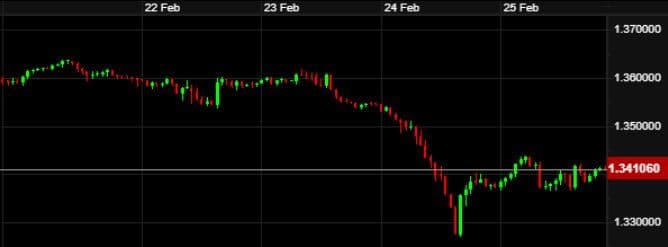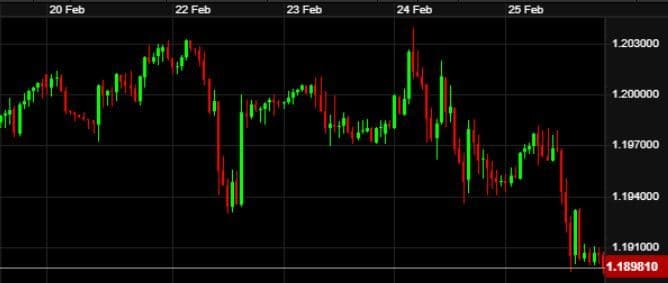ACM Update 28-02-22

The unprecedented and terrifying situation unfolding in Ukraine understandably took a lot of headlines last week. Our thoughts at Aston are with those impacted and affected by this situation.
The US Dollar saw some substantial gains last week, as investors sought out safe-haven assets off the back of the Russian invasion. Monday being a US bank holiday made for a quiet start to the week initially. Against GBP, we saw over 2.5% worth of movement in a 24-hour period (Wed & Thu), driving the pair to its lowest level since pre-Christmas. Biden and other politicians continued to roll out sanctions over the weekend, with the aim of suffocating the Russian economy.
In terms of data releases from the US, the inflation bubble is still expanding and consumer spending remains strong. The considerable movements last week mean any clients with a requirement to sell Dollars, should consider current positions. Reach out to the team this week for more information. Recent moves are shown below:

With the Eurozone being closest geographically to the Russia-Ukraine conflict, we might have expected the single currency to lose more value last week but this was not the case everywhere. Against GBP, the pair had a relatively stable week under the circumstances, with circa 1% worth of movements. The safe-haven Dollar though moved to its strongest against the Euro since May 2020. Movements can be seen here:

Data releases of note were also relatively thin. German manufacturing was still short of expectation and unlikely to be helped by current events. Eurozone manufacturing as a whole followed a similar trend. Final inflation figures for the bloc were confirmed at 5.1%. Again, sanctions continue to be rolled out by the EU, however there are widespread reports that some nations are looking for exclusions in the sanctions (Italy – luxury goods, Belgium – diamonds).
For GBP last week, again we saw little in terms of major data releases. Andrew Bailey told the Treasury committee that the soaring cost of living was his “biggest concern”. Recent calls from the Governor for wage restraint by workers have been met with anger from unions. He also got asked by a Labour MP to confirm his own wage was “over £570k”. Once the energy price cap is lifted in April, it has been suggested inflation could breach 7% in the UK, mirroring the current picture in the US.
A number of Russian banks have been excluded from the SWIFT payment system over the weekend, restricting access to smooth money transactions worldwide. When the same restrictions were applied to Iran in 2012 it lost nearly half of its oil revenues and 30% of foreign trade.
As mentioned already, other currencies gained heavily off the back of the Ukraine conflict. The Swiss Franc saw a major move which is often the case in times of uncertainty due to its view as a safe-haven and stable currency to hold. Commodity backed currencies were also boosted by the rapid increase in oil prices, namely the Canadian, Australian & New Zealand Dollars, and Norwegian Krone. New Zealand also saw a further interest rate rise last week, with their base rate now standing at 1%.
This week:
Tuesday – Reserve Bank of Australia Interest rate announcement (3:30am UK), Manufacturing figures for EU, UK, US & Canada (all day)
Wednesday – Eurozone Flash Inflation estimate (10am), Bank of Canada rate announcement (3pm), Jerome Powell testimony (3pm), Fed Beige Book (7pm)
Thursday – Services PMI data for EU, UK & US (all day), Jerome Powell testimony (3pm)
Friday – Non-Farm Payrolls (1:30pm) – Expectation 400k
Understandably we have seen some unprecedented movements in some major currency pairs last week. If these are impacting you or your business, then please get in touch via d.comber@astoncm.com to discuss in more detail.
Movements this week are likely to be heavily driven by what happens in Ukraine, which makes predicting them virtually impossible. The major data release of note comes on Friday with US jobs data in the form on Non-Farm Payrolls for February.
Stay safe